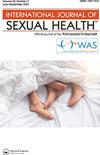Sexual Minorities within Heterosexuality: Psychosocial Characteristics of and Attitudes toward the “Fourth Love” in China
IF 2.2
4区 医学
Q2 PSYCHOLOGY, CLINICAL
引用次数: 0
Abstract
Objective: Within the context of gender diversity, the concept of heterosexuality is also changing, emerging as a diversified sexual orientation and identity. This study aims to challenge the orthodoxy about heterosexuality by exploring the psychosocial characteristics and attitudes toward “fourth love” in China. Method: Two studies initially explored the current status of fourth love as a sexual minority. In Study 1, The Sex-Role Inventory and the Marital Attitude Scale were used to assess fourth-love (N = 144) and traditionally heterosexual participants’ (N = 145) gender roles and marriage attitudes. In study 2, the Attitudes Toward the Fourth Love Scale was developed to assess college students’ (N = 315) attitudes toward fourth-love men and women. Result: Fourth-love women often identify with masculine gender roles and significant differences were found between fourth-love and traditionally heterosexual women their gender roles. Fourth-love men identified with a neutral gender role, while there are significant differences between fourth-love men and traditionally heterosexual women in masculine gender roles. Fourth-love people’s marriage attitudes were more negative than those of traditionally heterosexual people, especially for women. Various demographic factors influenced college students” attitudes toward the fourth love. Conclusion: As a sexual minority within the umbrella of heterosexuality in China, fourth-love individuals require further research attention and increased support.异性恋中的性少数群体:中国“第四次恋爱”的社会心理特征和态度
目的:在性别多元化的背景下,异性恋的概念也在发生变化,成为一种多元化的性取向和身份。本研究旨在探讨中国人对“第四爱”的社会心理特征和态度,以挑战异性恋的正统观念。方法:两项研究初步探讨了第四次恋爱作为性少数群体的现状。研究1采用“性别角色量表”和“婚姻态度量表”分别对144名初恋者和145名传统异性恋者的性别角色和婚姻态度进行评估。研究2采用第四次恋爱态度量表评估大学生(N = 315)对第四次恋爱男女的态度。结果:第四次恋爱女性的性别角色认同倾向于男性化,第四次恋爱女性与传统异性恋女性的性别角色认同存在显著差异。第四爱男性认同中性性别角色,而第四爱男性与传统异性恋女性在男性性别角色上存在显著差异。第四恋人群的婚姻态度比传统异性恋人群更为消极,尤其是女性。各种人口因素影响着大学生对第四次恋爱的态度。结论:作为中国异性恋群体中的性少数群体,第四爱个体需要进一步的研究关注和支持。
本文章由计算机程序翻译,如有差异,请以英文原文为准。
求助全文
约1分钟内获得全文
求助全文
来源期刊

International Journal of Sexual Health
Multiple-
CiteScore
3.00
自引率
20.00%
发文量
33
期刊介绍:
As the official journal of the World Association for Sexual Health, the International Journal of Sexual Health promotes sexual health as a state of physical, emotional, mental, and social well-being through a positive approach to sexuality and sexual rights. The journal publishes peer-reviewed scientific papers, editorials, and reviews, using quantitative and qualitative methods, descriptive and critical analysis, instrument development, surveys, and case studies to examine the essential elements of this broad concept. Leading experts from around the world present original work that covers a variety of disciplines, including sexology, biology, medicine, psychology, sociology, anthropology, history, and religion.
 求助内容:
求助内容: 应助结果提醒方式:
应助结果提醒方式:


